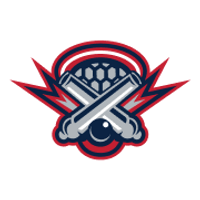Mikko Red Arrow can intimately remember the first time he officiated a lacrosse game.
It was 1998. He had just moved to North Carolina the year prior. Someone he met playing for a club team in Charlotte was a local high school coach, and his team was in dire need of an official.
The coach offered Red Arrow $75 for his time. He refereed the game in a tie-dye Grateful Dead t-shirt and a pair of New York Athletic Club shorts.
“Now that lacrosse has boomed down here and the talent can compete with anywhere across the country, we had to get organized as a group to make the level of officiating commensurate with the level of play that was now in place,” Red Arrow said.
Indeed, lacrosse in North Carolina has come a long way since then. As has Red Arrow’s officiating career. The Hofstra alum, former New York Saint and current member of the Premier Lacrosse League’s Lacrosse Advisory Board now officiates primarily Division I games. He said the highlight of his career thus far was the 2014 Division III men’s national championship game.
He also officiated this summer’s Major League Lacrosse bubble season.
Lauded as one of the best in the business, Red Arrow pays attention to the minutiae and seeks to develop relationships with both the players and coaches.
“He always wants to make sure he gets it 100 percent right, and it drives him nuts if there’s even a consideration in his mind that he’s not 100 percent correct,” said Kevin O’Leary, the executive director of the National Intercollegiate Lacrosse Officials Association (NILOA) and friend of Red Arrow’s.
“He’s very approachable. He wants to have the conversation with players so they can see what he’s thinking, and he wants to know where the players are coming from. That’s what separates him. He can multi-task while he officiates. He knows the rules and the mechanics and has the respect of the coaches, and then he also knows how to handle the players.”
O’Leary calls Red Arrow a players’ official. Red Arrow, who is the senior assistant district attorney of Iredell County in Mooresville, North Carolina, takes his craft seriously. He takes the game of lacrosse seriously, too.
Red Arrow, who is Cherokee and Lenape, recalled not picking up lacrosse until he was 9 or 10 years old. He had heard about the game but had never given it a try. Even though he spent many weeks over the summers of his youth at an annual powwow in Cape Cod, immersing himself in Native culture, Red Arrow didn’t discover lacrosse until his friend in Freeport, N.Y., got him to play.
“It was like, ‘Oh my God,’ where has this been?” Red Arrow said.
“It was a sport for me in the beginning, but then the more I researched it and from playing, people assume with a last name like mine or if you’re a Native person, you’re born with all these lacrosse skills. People assume Eric Clapton’s son was born with a guitar in his hands and he started playing. Maybe there was some inner attraction. I don’t know. I can’t explain it, but I felt it.”

























































